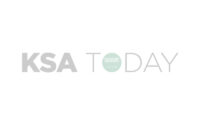Majority of Fitch-rated Islamic banks use islamic derivatives

Dubai: Demand for sharia-compliant risk-management tools, such as Islamic derivatives, is gradually rising in many Muslim-majority countries as their Islamic banks’ domestic market shares grow, and financial sector development and risks due to interest rates, foreign exchange rates, and commodity prices rise, Fitch Ratings says. Nearly three-quarters of Fitch-rated Islamic banks used Islamic derivatives in 2023–1H24 to hedge risks, which could support their credit profiles. However, sharia restrictions and differing interpretations, treasury infrastructure gaps, lack of standardisation, and regulatory issues prevented full take-up.
The conventional derivatives market is underdeveloped in most Muslim-majority countries, and Islamic derivatives are further behind in terms of product range, liquidity, adoption, and awareness. The over-the-counter (OTC) interest-rate derivatives turnover in Saudi Arabia, UAE, Bahrain, Malaysia, Indonesia, and Turkiye was collectively less than 1% of global volumes in April 2022, according to the Bank for International Settlements.
Malaysia is one of the most developed jurisdictions globally for Islamic finance. While both OTC and exchange-traded Islamic derivatives are available in Malaysia, its total derivates market was almost fully dominated by conventional derivates, with only 0.9% being Islamic derivatives in 2023. In most GCC countries, the OTC Islamic derivatives are more readily available than a decade ago, but exchange-traded Islamic derivatives are almost absent and in a nascent state. Islamic derivatives availability is even further behind in less developed Islamic-finance markets such as Indonesia, Turkiye, Bangladesh, Jordan, and Pakistan.
Islamic banks’ credit profile could benefit from the use of Islamic derivatives such as profit-rate swaps, forward foreign-exchange contracts, cross-currency swaps, forward-rate agreements, and options.
In Fitch’s assessment of an Islamic bank’s standalone creditworthiness, moderate and well-managed exposure to structural market risks (interest or profit rate risk in banking book, FX risk, equity risk) is positive. In contrast, high exposures to structural market risks, which are weakly mitigated or managed, is viewed as negative. This includes the potential for outsized net interest (profit) margin variation or a high proportion of unhedged long-duration or fixed-rate exposures. While derivatives aid risk management, they can also expose banks to counterparty credit, liquidity, currency-basis and operational risks.
Various regulators are taking initiatives to develop the derivatives market. In Malaysia, the Shariah Advisory Council of Bank Negara Malaysia in 2023 ruled that anticipatory hedging for Islamic banks is allowed based on the high probability that the actual exposure will materialise at a future time. The Securities Commission updated its guidelines for Islamic unit trust funds and permitted employing derivatives, but solely for hedging purposes, and such derivatives must be Islamic derivatives (with certain exceptions).
In the UAE, the central bank directed Islamic banks to adopt hedging techniques, including Islamic derivatives, to manage foreign exchange exposures. In Saudi Arabia, the Saudi Exchange launched the conventional derivatives market in 2020, and has since introduced derivatives products, including MT30 Index Futures, single stock futures, and single stock options. The Saudi Central Bank issued a draft regulation to implement close-out netting legislation, which would make it among the final G20 countries to implement it.
In Indonesia, the central bank has developed a hedging instrument under sharia principles to maintain rupiah stability. In Qatar, the launching of a derivatives exchange is part of the central bank’s strategic plan, and the QFC Regulatory Authority issued a regulatory framework for listed derivatives. In Oman, Islamic derivatives are largely absent as the tawarruq contract – which commonly underpins Islamic derivatives in most markets – is not allowed. However, Bank Nizwa (unrated), which is one of two full-fledged Islamic banks in the country, obtained fatwa from its sharia board, confirming that profit rate swaps based on investment agency contracts are sharia-compliant.





 Email: info@cyber-gear.com
Email: info@cyber-gear.com